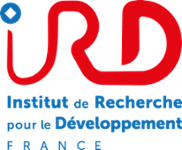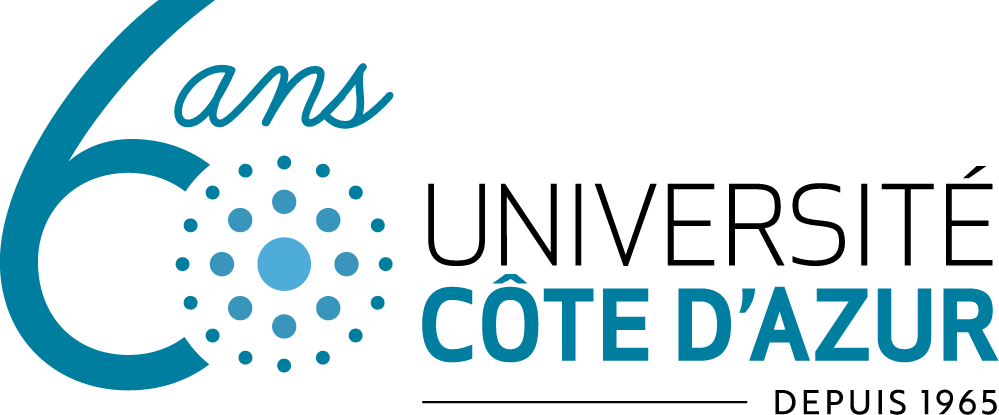It’s crucial for your scientific results to be clearly visible.
Your publications and other contributions must be accessible and easy to find in order to increase their impact and your opportunities for collaboration.
Research—no matter how relevant—cannot fully contribute to society or advance your academic career if it is not shared and made visible.
Taking the time to consider your online visibility is a strategic move to amplify the impact of your work.
To help you increase the reach of your research, this page highlights key levers you can activate to enhance the visibility of your scientific output—and, in turn, maximize its impact.
> Contact us to benefit from the support of IdEx and DiBSO in disseminating and enhancing the visibility of your research
Visibility Check
Before taking any action, it’s important to assess your current situation.
We recommend taking the Visibility Check: a quick diagnostic tool that, in just a few minutes, provides a visibility score. It highlights the strengths of your online presence and helps you identify key areas for improvement.
Check your scientific visibility
Create and maintain researcher profiles
These profiles are a cornerstone of your research visibility.
In addition to preventing name confusion, they offer a centralized, comprehensive list of your publications.
Because these platforms are well indexed by search engines, keeping them up to date is essential for ensuring that the scientific community and evaluators can easily access your work.
- University directory
-
Highly indexed by search engines, the university directory serves as an official gateway for showcasing your research activities.
You can update your profile through the University's Intranet under the “Accès Rédacteur” section. - ORCID ID
-
ORCID is a unique international identifier that ensures interoperability across publishers, funding bodies, and bibliographic databases.
Your ORCID ID connects the various outputs of your research activity—such as a journal article that is submitted, published, and indexed—across different information systems.
It eliminates the need to manually re-enter your information (such as publication references) across multiple platforms by enabling the import and export of data between interconnected systems and the ORCID registry.
- Scopus AuthorID, Web of Science ResearcherID, Google Scholar ID, IdHAL
-
It is essential to create a researcher profile for each of these databases. These platforms may automatically generate multiple profiles for the same person, so consolidating your publications under a single, verified profile is crucial.
With just a few clicks, you can claim your publications and ensure they are associated with your official profile.
- The Scopus and Web of Science bibliographic databases provide strong visibility among peers and are often used by evaluators for bibliometric analysis.
- The Google Scholar database offers immediate visibility through Google’s search engine.
- IdHAL is the unique identifier of the French national open archive, HAL. It enables you to claim your publications—whether uploaded by you or not—and to quickly link them to your ORCID profile.
- Linking your profiles
-
It’s essential to link your various researcher profiles, as many platforms are interconnected. Updating one profile can automatically update others.
Linking your accounts across academic platforms not only centralizes your information but also ensures that your publication records and research activities are updated seamlessly and consistently.
For instance, if your Scopus or Web of Science profile is linked to your ORCID ID, any new publications indexed in these databases will automatically appear on your ORCID profile.
Reach a wider audience
Maintaining a presence on more general or accessible platforms can help expand the audience for your research—both within the academic community and beyond.
- ResearchGate
-
ResearchGate is a widely used academic social network where you can share publications, follow other researchers, and engage in discussions around your scientific work. It offers an excellent platform to showcase your research within the academic community.
However, it’s important to note that ResearchGate is a commercial platform. It does not guarantee the long-term accessibility of your work or compliance with publishers’ copyright policies.
For this reason, it is essential to also deposit your publications in an open-access repository, which ensures their preservation over time and compliance with open science principles. -
Today, LinkedIn is a powerful tool for scientific communication, widely used by researchers, institutions, and funding bodies. It provides access to a broad audience of key stakeholders in the research community.
Open Access publishing
Open Access publishing not only allows you to share your research with a wide audience, but also increases its impact through higher visibility, citations, and downloads. Because publication fees (APCs) can be significant, Université Côte d'Azur offers various support mechanisms to help researchers cover all or part of these costs.
- Transformative agreements
-
Transforming agreements, also known as “global reading and publication agreements”, are contracts negotiated between academic institutions and scientific publishers. Their goal is to support the shift from the traditional subscription-based model to full Open Access publishing.
These agreements provide both access to the publishers’ journal collections and the ability to publish articles in Open Access, with full coverage of APCs for corresponding authors affiliated with Université Côte d’Azur.
As part of the negotiations led by the Couperin consortium, Université Côte d'Azur has signed three global agreements and one “subscribe to open” agreement.
- Elsevier for the period 2024-2027
- Wiley for the year 2025
- Cambridge University Press for the year 2025
- EDP Sciences for the period 2022-2026
Find out more (conditions, list of eligible journals, etc.) on the University's Open Science website. - IdEx APC form
- As part of its commitment to increasing scientific impact and promoting open science, IdEx Université Côte d’Azur has established a funding scheme to support the payment of Article Processing Charges (APCs) for publications in Open Access journals. If none of the article’s authors has funding available to cover APCs, the Université Côte d'Azur’s IdEx can provide support. This portal serves as the sole interface for requesting APC funding and submitting the necessary documents for funding validation.
Submit your request using the dedicated form! - Depositing your publications in open archives
-
Depositing your research articles in open archives is essential for enhancing their visibility and ensuring long-term accessibility.
HOW TO DEPOSIT IN HAL?
1) Log in to the HAL Université Côte d’Azur portal and create a HAL account if you don’t have one yet.2) Click on “Déposer”.
3) Select the type of document you want to deposit.
4) Deposit a file or enter a DOI. The main metadata (titles, authors, abstracts, keywords, etc.) are automatically extracted. If not, go directly to the next step.
5) Check and, if necessary, add authors and affiliations.
6) Check and complete other information.
7) Validate your deposit.
Interoperability between open archives
You can upload your HAL deposit to the arXiv open archive by clicking on the “Transfer to arXiv” option.
To be able to do this, your deposit must include an abstract in English and fall within one of arXiv's disciplinary fields.

















